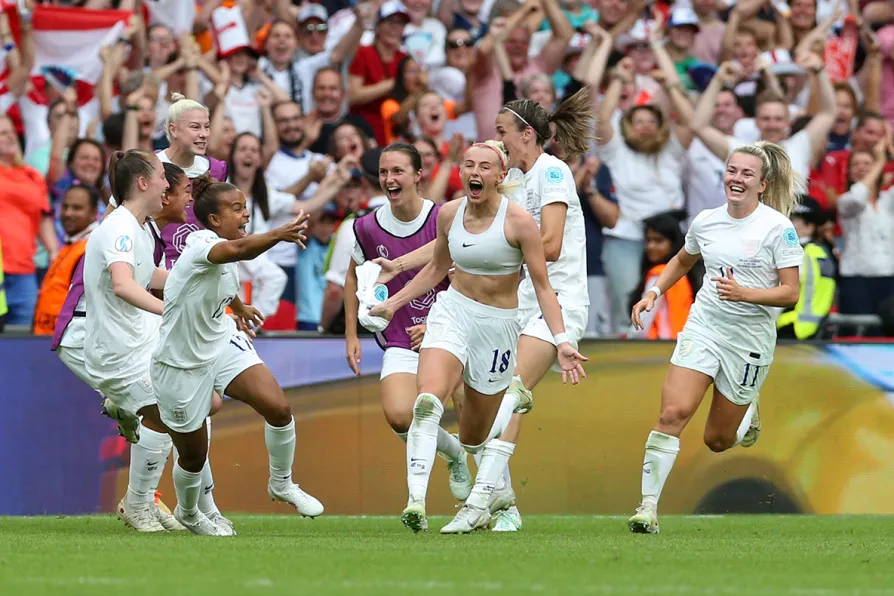Hopefully, the growth of women’s football will blaze a trail of sanity
Baroness Sue Campbell’s vision for the game’s future leaves JAMIE J feeling hopeful

 Chloe Kelly and her teammates celebrate her extra-time goal against Germany at the Euro 2022 final
Chloe Kelly and her teammates celebrate her extra-time goal against Germany at the Euro 2022 final
WHEN the English FA unveiled its Inspiring Positive Change strategy for women’s and girls’ football back in October 2020, it included the “transformational” objective of winning a major tournament within four years.
At the time, the FA officially regarded that as an “ambitious” target despite the women having made it to the semi-finals of 2019’s World Cup, where they lost to eventual winners, the USA.
At their version of the World Cup in 2018, the Under-20s had taken third place.
Similar stories














